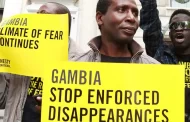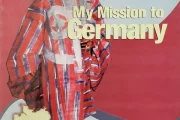
Dr Auwalu Gwaram, Dept of English, ABU, Zaria

The frightening reality about which the United Nations Educational, Scientific and Cultural Organisation, (UNESCO) has raised the alarm long time ago relating to a language dying off because there is no one left speaking it has arrived or been reinforced in Nigeria. It did so with the recent death of the last speaker of Kwarkwanchi language, hitherto spoken by a minority based mainly in Gwaram Local Government Area of Jigawa State. It was neither Hausa, Fulani nor Kanuri but a language spoken by people suspected to have been driven away from around Borno by large scale conflict many centuries ago. Planted in the combined linguistic environment of Hausa and Fulfulde, the language suffered what linguists call subtractive bilingualism or the learning of another language at the expense of one’s own native tongue. Subtractive bilingualism is the crisis facing Fulfulde and Igbo today too.
Dr Auwalu Gwaram, a researcher from the Department of English, Ahmadu Bello University, Zaria who has followed the Kwarkwanchi journey to extinction confirmed to Intervention that there is no speaker of the language left today. The sizeable community which owns the language is still there but nobody among them can speak the language again. The last person who could do so is the elderly woman who died in 2015. She was called Babajuji, Hausa language for her status. The locality is called Latta. All efforts to groom more speakers failed. The first of such efforts was the grooming of Babajuji’s only daughter. The tragedy was her death during child delivery before her own recent death. Otherwise, Bubajuji’s daughter could speak the language as well as teach others.
The second was the attempts by Gidan Makama in Kano to record Babajuji. Babajuji told Dr Gwaram of several such invitations, leading to the belief that Gidan Makama must have recorded her, perhaps substantially. If that happened, then Gidan Makama’s archives must be the only source of the language today. The third of such efforts was the joint one by Dr Gwaram and Alhaji Shittu Gallambi, the then member of House of Representatives from the area in 2014. It involved organising a class to train younger natives. But it ended up a failure partly because all other natives around her were comfortable speaking Hausa and nobody was willing to learn Kwarkwanchi. Hausa language is their language now because there is no one in that community who can even mention some words of Kwarkwanchi.
Although Dr Gwaram is not Kwarkwanchi but Hausa in identity, he delved into Kwarkwanchi for academic purposes. His analysis of the language showed sounds, 34 of them; grammatical categories such as noun, adjective, adverb, proposition and active/passive voice in the language. He also found that the language pluralised water which can reveal something about its larger language family or genealogical bearing.
Experts point out that the fate of Kwarkwanchi is a warning to other languages because the language that dies is not necessarily the language of a minority. Rather, it is the language whose native speakers are not using it to their younger ones. This, it is argued, is the case of Igbo. At a recent conference on “Globalisation, Language and Discourse” at the Obafemi Awolowo University, Ile-Ife, this was the basis upon which some researchers graded Igbo as an endangered language in Nigeria. Unlike the Yorubas noted for code-switching in everyday language use, the Igbos are said to be nonchalant in speaking the language to younger ones. The most affected are elite families, those involved in inter-tribal marriages and those in urban centres where life is lived in diversity.
But it is not Igbo language alone. Fulfulde is another example liberally cited by scholars. In the case of Fulfulde, however, the problem is not lack of interest on the part of natives. Actually, it is noted that being able to speak the language admits you into in-group. In other words, a non-Fulani who can speak Fulfulde is even more welcome than a Fulani who cannot speak the language. So, there is no case of nonchalant attitude to the language from the natives. The problem for Fulfulde is a language loss occasioned principally by the migratory nature of the majority of the native speakers. Although Fulfulde is spoken by large number of people around Adamawa and Gombe and adult Fulanis have thus not stopped using Fulfulde but speakership is affected by the nomadic nature of a bulk of the population, a process in which they, circumstantially, learn to speak other language at the expense of Fulfulde. So, whether they like it or not, their language, culture and world outlook are also scattered. The claim is that Fulfulde would have suffered the more if there had been no globalisation. Articulating this point, Dr. Gwaram, for instance, points out how distance affects language use. But, in the age of globalisation, especially the advent of the GSM, a Fulfulde speaker in a wonderland could still have a conversation in the language by calling back home. A Sociologist of Fulani origin agrees with the postulation.
While the problem is attitudinal for Igbo and occupational for Fulfulde, the situation in central Nigeria is much more complex. It is both attitudinal, geopolitical and a peculiar dimension of cultural pluralism. The Middle Belt is so linguistically cosmopolitan that only the use of a lingua franca enables many communities to communicate with each other. This explains Pidgin English or Hausa language dominance in the Middle Belt, including preaching. Secondly, many languages in the Middle Belt have no orthography. Without orthography, then standardisation is compromised, meaning vulnerability to endangerment. Again, this compels the cultural clusters in the Middle Belt to embrace Hausa or Pidgin English. Finally, contact with dominant Nigerian languages such as Hausa or Yoruba in themselves compound language endangerment in the area. While Hausa is said to be inherently a linguistically expansionist language. Yoruba is invasive through its speakers who, instinctively, inundate the Other with it. Yoruba is regarded as the most studied language across the world while Hausa is said to have natural expansiveness and its spread is not associated with any organised efforts.
The extinction of Kwarkwanchi or any language at all is frowned at by UNESCO because every language is an embodiment of human civilisation. The death of every language is, therefore, a subtraction from the totality of human progress. UNESCO raises the alarm but it is national governments that can, more competently, do what can keep every language from extinction. Keeping a language from extinction has no incentive in profit terms. So, privatising it will not fly. Even where the best researches were conducted, only governments have got the human, material and other instruments to operationalise such researches. This capacity might not be exclusive to the government on other continents. In most African countries, it almost is. So, Kwarkwanchi brings home the reality of endangered languages, a sword hanging over many languages in Nigeria, including one of its three most dominant languages.


























